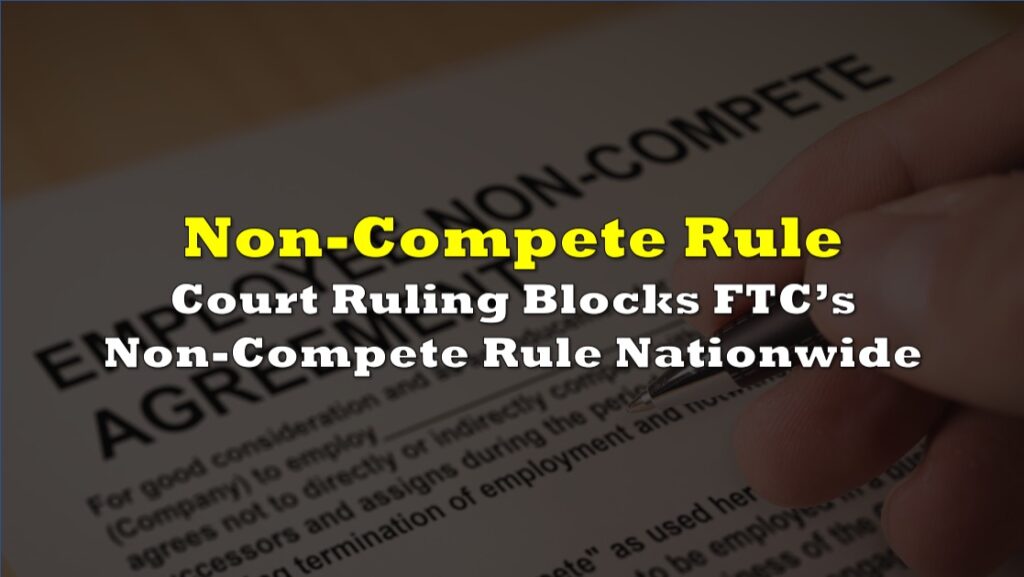The Federal Trade Commission has taken significant legal action against three Texas car dealerships owned by Asbury Automotive Group, one of the largest automotive retailers in the United States. The dealerships—David McDavid Ford in Fort Worth, David McDavid Honda in Frisco, and David McDavid Honda in Irving—are at the center of a lawsuit that accuses them of deceptive practices, including “payment packing” and discriminatory sales tactics aimed at Black and Latino customers.
Asbury Automotive has categorically denied these allegations, asserting its compliance with the law and vowing to fight the charges in court. This case marks the latest move in the FTC’s ongoing efforts to clamp down on what it perceives as predatory practices in the auto retail industry.
FTC has car dealers in its crosshairs:
— Car Dealership Guy (@GuyDealership) August 26, 2024
Stunning allegations by the FTC are putting one of the *largest* dealer groups in the country on notice.
3 Texas car dealerships owned by Asbury Auto, are accused of using “payment packing” to sneak in extra charges and “add-ons” without…
At the heart of the FTC’s lawsuit is the practice known as “payment packing.” This tactic involves adding unauthorized fees and unnecessary add-ons—such as extended warranties, service contracts, or insurance products—into a car buyer’s financing agreement without their explicit consent. The result is a higher monthly payment than what the customer initially agreed to, often disguised in the paperwork or verbally minimized by sales staff.
According to the FTC, the three David McDavid dealerships engaged in this practice, leading customers to unknowingly pay more than they should have. The commission claims to have received numerous complaints from consumers who felt misled by the dealerships.
In addition to payment packing, the FTC also alleges that these dealerships practiced racial discrimination by charging Black and Latino customers higher prices and offering them less favorable loan terms compared to white customers.
Asbury Automotive has strongly denied the FTC’s claims, with CEO David Hult stating in a press release, “Asbury Automotive takes great pride in its compliance procedures and training practices, and firmly believes that we protect our guests and serve them well.” The company has conducted an internal investigation, which, according to Asbury, found no evidence of the alleged wrongdoing.
Moreover, Asbury pointed out that a Freedom of Information Act request revealed no consumer complaints filed with the FTC against the three dealerships during the specified timeframe.
Despite these denials, the FTC’s lawsuit underscores a broader pattern of increased scrutiny on car dealerships by the regulatory body, especially in light of the ongoing legal battles over the proposed Combatting Auto Retail Scams (CARS) rule.
The CARS Rule
The FTC’s aggressive stance against Asbury Automotive comes at a time when the proposed CARS rule is stuck in legal limbo. The rule, introduced earlier this year, aims to enforce stricter regulations on car dealerships, particularly concerning add-ons and fees, which have been a source of consumer complaints for years.
The CARS rule would require dealerships to clearly disclose all costs upfront, banning deceptive practices like payment packing and ensuring that customers are fully informed about the financial implications of their purchase.
However, the rule has faced stiff opposition from industry groups, including the Texas Automobile Dealers Association and the National Automobile Dealers Association. These organizations have sued the FTC, resulting in a court review that has delayed the implementation of the rule.
FTC Chair Linda Khan, known for her tough stance on consumer protection, appears unwilling to wait for the courts to resolve the CARS rule dispute. The lawsuit against Asbury Automotive could be seen as a signal that the FTC is determined to pursue legal action against car dealerships it believes are engaging in unfair practices, regardless of the outcome of the CARS rule litigation.
Information for this briefing was found via the sources mentioned. The author has no securities or affiliations related to this organization. Not a recommendation to buy or sell. Always do additional research and consult a professional before purchasing a security. The author holds no licenses.









